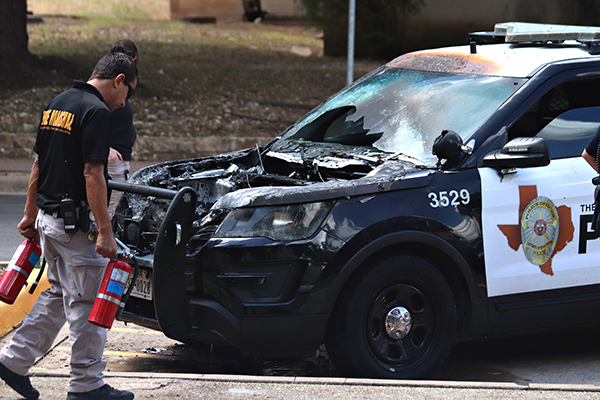Austin approves reopening of cadet academy with changes to include training on racial inequities in policing
March 30, 2021
The Austin City Council approved a blueprint to reopen the police cadet academy Thursday with increased diversity, equity and inclusion training, but community members and activists worry the move will undercut progress toward police reform.
APD created the reimagining public safety effort in August that implemented task forces to address problems of racism and discrimination within but Some activists expressed concerns that Austin Police Department has not done enough work yet to change systemic issues, including in the police academy. The academy plans to resume by June 7.
Chris Harris, the director of the Criminal Justice Project at Texas Appleseed, said this reopening time frame could compromise the success of diversity and inclusion efforts.
“We are currently in the midst of a city-managed process to reimagine public safety, and those of us involved in the task force believed that the city was serious about looking for opportunities to pursue public safety through means different than policing,” Harris said. “By rushing to restart the academy, it really undercuts that work and doesn’t keep the door open for us to pursue that reimagining.”
After a city audit showed APD’s training materials needed to reevaluate areas of study such as use of force, de-escalation procedures and racial bias instruction, the academy halted operations in February 2020. The city then voted to cancel all classes in August 2020 due to APD’s use of violence in the Black Lives Matter protests in Austin over the summer. During the protests, APD used tear gas, bean bag rounds and rubber bullets against protestors, resulting in some serious injuries, including Justin Howell, a Black student at Texas State University that was left in critical condition last summer after APD shot “less lethal” ammunition at a protest.
The approval of a new cadet class passed 8-1, with council member Greg Casar opposing and members Natasha Harper-Madison and Vanessa Fuentes abstaining.
Interim police chief Joseph Chacon said in a media briefing Tuesday that APD will conduct a workshop on institutional and racial inequities in policing training. He said future and current officers will receive this training.
“We’re going to be enhancing diversity, equity and inclusion in all APD divisions,” Chacon said. “We are working hard to make sure that we are meeting community expectations so that when we reopen (the academy), that we are doing so with the full confidence (of the community).”
There are currently 95 vacancies within APD as of last Wednesday, and they expect over 100 open positions by the end of the month.
In June, an independent evaluator will assess a pilot class to see if the changes to the academy curriculum have been successful, according to the blueprint. The city will also consult with the community to see if the changes have met their expectations. The plan did not outline how they will reach out to the community.
Meme Styles, the president and founder of Austin activist group MEASURE, said there is a lack of data-based evidence suggesting that the city of Austin needs increased policing.
“We understand that APD is ‘understaffed,’” Styles said. “But there has not been any research done to tell us the number of officers that we need in order to maintain a very safe and healthy city.”
MEASURE uses data on community policing and education to mobilize communities to eliminate social disparities, according to their mission statement. MEASURE is a participating organization in Austin is Safer When, a community-based coalition seeking police accountability.
“(The city is) thinking about bringing in more young, impressionable police officers, and we have to make sure that the top of the police department is anti-racist and also willing to be evidence-based,” Styles said. “Right now, (they) don’t have that structure.”



